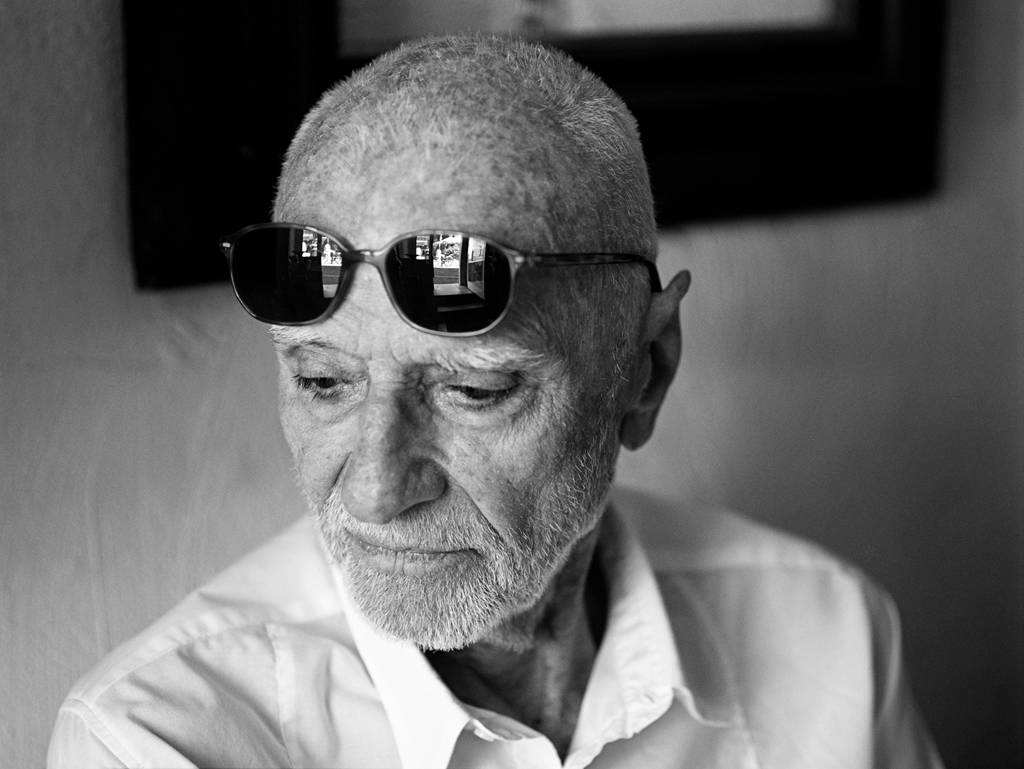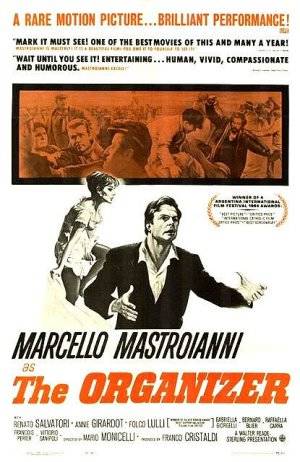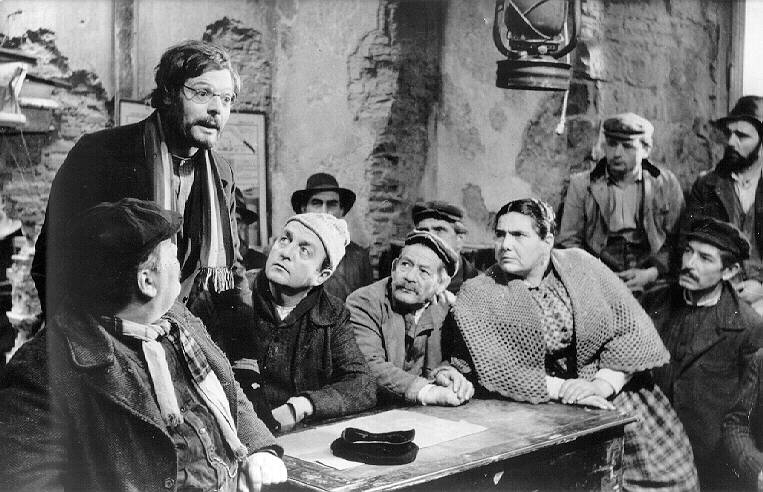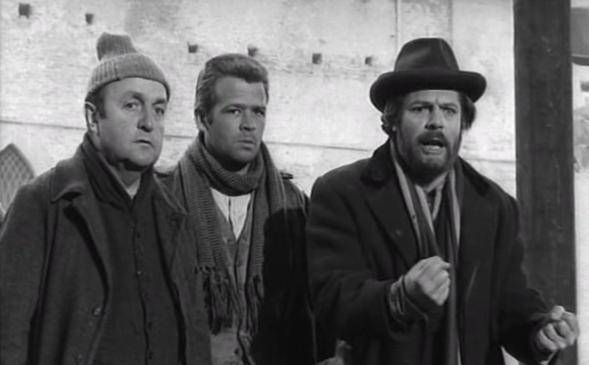The Organizer: Find Your Voice, Unite, and Stand Up For Yourself
In Turin, at the end of the 19th century, textile factory workers are killing themselves working hard for 14 hour days. It looks like the whole town works here, from the very young kids to older family members, fathers and daughters.
Exhausted and sleepy by days end, workers keep getting hurt until one day, after the umpteenth accident, when a man is maimed by machinery, the workers decide they have had enough. They all agree to talk to the manager about the long hours, but they get nowhere.
Still they don't give up. A few are selected to lead the group and their first attempt at rebellion is to work one hour less by cutting off the steam to the machinery at day's end. One more time, they get nowhere.
The new idea is to begin their day one hour later, but that doesn't happen either as they are inspired by a new man in town, Professor Sinigaglia, to strike. The Professor is a socialist, a former high school teacher from Genoa who is fleeing authorities. After getting food on credit, they all refuse, except one, to show up at work and they keep fighting until the end.
I Compagni (in the US the film is titled The Organizer rather than the literal translation which would the The Comrades) is an award nominated (Academy Award for Best Screenplay) grainy black and white film shot in 1963, directed by Mario Monicelli.
It is a docudrama with a slight comedic edge that was “a box office failure and Monicelli blamed himself for it,” Professor Antonio Monda (NYU) said at the screening of the film at Casa Italiana Zerilli Marimò. This ensemble film on the work situation and poor life conditions of Italian workers was inspired by Monicelli's trip to Paris.
“As he visited the site of the Bastille he realized he was facing a piece of history and there was not much to testify it. A group of poor people had fought hard and they had changed the course of history. That had to be remembered,” Prof. Monda added.
“Monicelli took great care in recreating the right historical ambiance,” Professor Ruth Ben-Ghiat (NYU) added, “the use of comedy, for example, which is often criticized, humanizes this film as the filmmaker tries not to heroicize the protagonists of this story.”
Professor Sinigaglia, played by a young Marcello Mastroianni wearing weird contact lenses in some scenes and not in others, believes that ideas can change the world, he is at the service of his political ideals thus he finds himself with “no home, no family, no friends.”
He helps the workers even though he doesn't even know them and he believes in their cause over everything else. He arrives in town by train as a group of replacement workers from Saluzzo does later during the film (as the strikers do not give up, the factory's management hires a large number of unemployed workers that, although asked peacefully to join the cause, are too desperate not to take the job).
The film also ends with a train, the train Raoul, played by Renato Salvatori, boards to escape the city and possibly “organize” in a different city. The Professor has given him the address of a friend.
This long, atmospheric film features a flawless script, co-written by the team of Agenore Incrocci and Furio Scarpelli, outstanding wide screen compositions and inspiring black-and-white cinematography by Giuseppe Rotunno. It makes you wonder if ideals are worth fighting for.
Omero (played by Franco Ciolli), probably 13 or 14 years of age, works in the factory and he is really involved in the strike. He brings money home and, from the very first scene of the film, wants his little brother to study hard and go to school, because his biggest nightmare is to see him end up working in the factory. Omero's fight is unsuccessful. So you ask yourself, like the characters themselves do, ... was all that worth anything?
The film has just joined the Criterion Collection, (Criterion is dedicated to gathering the greatest films from around the world and publishing them in editions that offer the highest technical quality and award-winning, original supplements) and is presented uncut, in its original aspect ratio, as its maker intended it to be seen.
The DVD, which will be released on April 24, features a new, high-definition digital restoration, an introduction by Mario Monicelli interviewed by Professor Antonio Monda, the trailer, a new English subtitle translation and an essay by film critic J. Hoberman.








































i-Italy
Facebook
Google+
This work may not be reproduced, in whole or in part, without prior written permission.
Questo lavoro non può essere riprodotto, in tutto o in parte, senza permesso scritto.